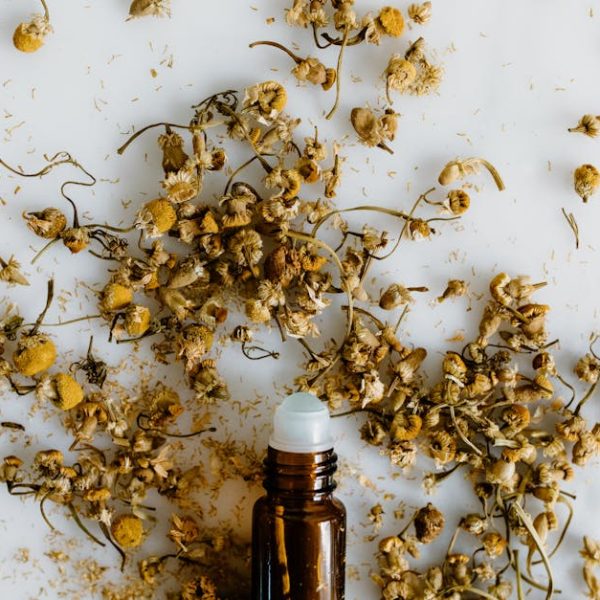Canker sores, medically known as aphthous ulcers, are small, shallow and painful lesions that develop in the soft tissues of the mouth or at the base of the gums. They are not contagious but can make eating and talking difficult and uncomfortable.
Understanding Canker Sores: Causes and Symptoms
The exact cause of most canker sores remains unknown, but some common triggers can cause them to appear. These include minor injuries to the mouth from dental work, aggressive brushing, sports accidents or a spicy or acidic food. In certain instances, citrus or acidic fruits and vegetables, like lemons, oranges, pineapples, and tomatoes, can trigger a canker sore or make the problem worse. They are also linked to certain diseases of the immune system.
Symptoms include a small, white or yellow ulcer surrounded by a red halo. It’s often accompanied by a tingling or burning sensation before the sores appear.
Best Practices: One way to prevent canker sores is by avoiding triggers such as spicy or acidic foods and unnecessarily aggressive brushing. Keep to a routine of good oral hygiene including regular flossing, brushing teeth gently with a soft brush and scheduling regular dental appointments.
Over-the-Counter Treatments for Canker Sores
A variety of over-the-counter (OTC) treatments are available for canker sores, including mouth rinses, pastes, creams, gels, and liquids, which can provide temporary relief from the pain caused by canker sores. Furthermore, certain mouth rinses contain an antiseptic to help prevent bacterial infection, which can delay healing of canker sores.
Pro Tips: Using OTC products according to their instructions is key. Apply them directly to the sore as directed on the packaging, and for the recommended duration. Always remember to not eat or drink for a certain period after application, in order to let the medicine work.
Natural Home Remedies for Canker Sores
For those who prefer a more holistic approach, several home remedies can offer relief from canker sores. These can include rinsing your mouth with a chamomile tea, applying honey to the sore, or making a mouth rinse from warm water and salt.
Best practices: No matter which home remedy you try, consistency and regular application are key components to achieving relief.
Common Dietary Changes for Treating and Preventing Canker Sores
Diet can play a pivotal role in not only treating canker sores but also in preventing their recurrence. Nutrient-rich, whole foods can potentially expedite the healing process of canker sores. Yogurt and other probiotic foods can help balance the bacteria in your mouth thereby reducing the instances of canker sores.
Best Practices: Consider including a variety of fruits, vegetables, and lean proteins in your diet. Also, always stay hydrated by drinking plenty of water throughout the day.
This is your first step towards understanding and treating canker sores. In the following sections, we’ll delve further into the dietary changes you can make, and when prescription treatments might be your best option. Remember, always consult with your healthcare provider or dentist before beginning any treatment regimen for canker sores.
Possible Prescription Treatments for Severe or Persistent Canker Sores
In some cases, if canker sores are large, persistent, cause severe pain, or if they appear to be spreading, then prescription treatments may be the best option. These may include steroid ointments or certain mouth rinses specifically designed to treat more severe cases of canker sores.
Pro Tips: Prior to starting any prescription medications, make sure to discuss potential side effects with your healthcare provider. It’s essential to follow the physician’s instructions to ensure effective healing and avoid complications.
Food and Canker Sores: What to Eat and Avoid
Certain dietary changes can significantly contribute to healing and preventing canker sores. Here, we list down the foods to incorporate and to avoid in your diet.
- Recommended Foods:
– Yogurt: Helps balance mouth bacteria and prevent canker sores.
– Leafy greens: Provide necessary nutrients for healing.
– Lean proteins: Aid in tissue repair and healing.
- Avoid These Foods:
– Citrus fruits: May cause further irritation.
– Spicy foods: Can trigger or worsen pain.
– Acidic foods: Can prolong healing time.
Remember, these recommendations should not replace professional advice.
Treatment Comparison: OTC, Natural Remedies, and Prescription
We’ve talked about each of these treatment methods independently, and now let’s compare them side by side to better assist you in making an informed decision.
| Treatment Method | Effectiveness | Cost | Ease of Use |
|---|---|---|---|
| OTC Treatments | Effective for minor to moderate sores | Variable, usually under $20 | User friendly |
| Natural Remedies | Can ease discomfort and possibly speed healing | Often low-cost using existing pantry items | Depends on the remedy, but usually fairly straightforward |
| Prescription Treatments | Ideal for severe or persistent sores | Variable, depends on insurance coverage | Need to follow doctor’s instructions |
The best treatment choice will depend on the size and severity of your canker sores, your comfort level with home remedies, and your budget. Always consult with a healthcare professional for chronic or severe cases of canker sores.
Key Takeaway:
- Canker sores, while non-contagious, can cause discomfort and pain during eating and speaking.
- Avoiding triggers, maintaining oral hygiene, and regular dental visits can help prevent canker sores.
- Over-the-counter treatments, natural home remedies, dietary changes and, in severe or persistent cases, prescription treatments can provide effective relief.
- A balanced diet rich in whole foods and probiotics can expedite the healing process of canker sores and reduce recurrence.
- It’s essential to consult with your healthcare provider or dentist before beginning any treatment regimen for canker sores.
Understanding and effectively caring for canker sores becomes less daunting when equipped with the right knowledge and practices. Remember to pay attention to what your body is telling you, avoid potential triggers, and follow best practices in oral hygiene. By addressing this issue proactively and responsibly, canker sores will no longer be a factor standing in the way of your comfort and well-being.
FAQs
Q: Can certain foods cause canker sores?
A: Yes, certain spicy or acidic foods have been known to trigger canker sores or worsen the symptoms.
Q: Is it necessary to see a doctor for every canker sore outbreak?
A: Not necessarily. However, if your canker sores are large, persistent, cause severe pain, or if they appear to be spreading, then you should definitely consult with a healthcare professional.
Q: How long does it usually take for a canker sore to heal?
A: Most canker sores will heal on their own within one to two weeks. If your sore hasn’t healed after this time, you should consult a healthcare professional.
Q: Can I use both natural and over-the-counter treatments together?
A: Yes, you can. However, it is always advisable to consult your healthcare provider before starting any treatment regimen.
Q: Does brushing my teeth more often help prevent canker sores?
A: It’s not about brushing more often, but brushing correctly. Over-aggressive brushing might actually cause canker sores. Make sure to use a soft-bristled toothbrush and brush your teeth gently.
If you find this information useful, please share this article and explore more posts on our website. Your well-being is our priority.






